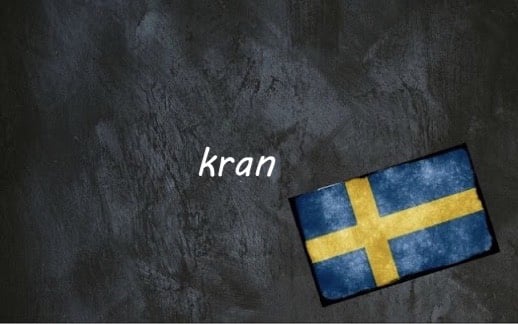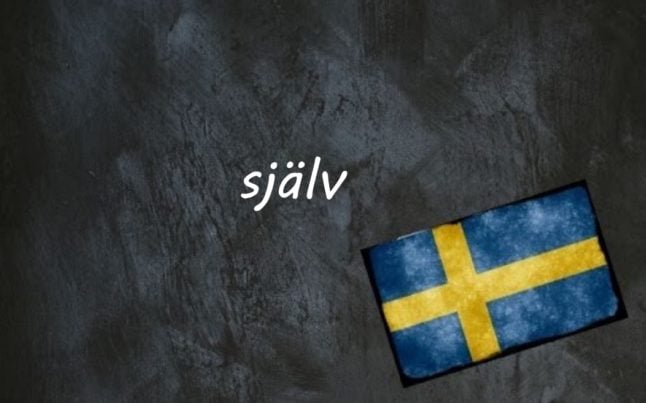Kran has at least 4 possible meanings in Swedish. The word itself originates from the Middle Low German kran, taken from krane which means “crane”, as in the bird. But in Swedish a kran is never a “crane”, that beautiful bird is called a trana in Swedish.
The first meaning of kran is the lifting device used by builders, dockworkers and others. This can also be called a lyftkran, literally a “lifting crane”. Famous Swedish examples of these are the iconic red cranes of Hisingen island in Gothenburg, left there as a reminder of the large shipyards that used to be one of the big industries of the city.
The second meaning of kran is a “tap” or a “faucet”. You can also say vattenkran, but kran is usually enough. Kranar, that is the plural, can be used for more than water, as you well know, so vattenkran is not the only compound word with kran in it. And since Swedish is a language where you are free to create compound words without anyone batting an eyelid, here are a few possible ones: gaskran, soppkran, saftkran, and so on and so forth.
The third meaning of kran is “nose”. Not just any nose, this word is often used in reference to a particularly big nose. Nothing wrong with that. Famous Swedish examples include Zlatan Ibrahimovic as well as actor Fares Fares. Do keep in mind that people can be sensitive around the subject of their abnormally large noses, so use kran with discretion, as it is most likely to be interpreted as offensive unless you are close friends with the person with the kran.
The fourth meaning of kran is “drug dealer”. It is a slang word, of course, kind of like “pusher” or “candy man”. The idea is more along the lines of “supplier”, and it is sometimes used to denote suppliers of other, not illicit, products, although we do recommend to instead use the word leverantör for that.
A bit of trivia: “geranium”, also called cranesbill, shares its etymological origin with “crane” in the greek word γέρανος (géranos) which means crane. The reason the plant is called this, as well as its English name “cranesbill” is due to the resemblance, in some of the species, between the fruit capsule and a crane’s head and bill.
Example sentences
Luktat dig till ett bra pris på den här kranen med din kran eller?
Smelled your way to a good offer on this crane with your snout, did you?”
Har du sett de vackra gamla kranarna i Göteborg?
Have you seen the beautiful old cranes in Gothenburg?
Villa, Volvo, Vovve: The Local’s Word Guide to Swedish Life, written by The Local’s journalists, is now available to order. Head to lysforlag.com/vvv to read more about it. It is also possible to buy your copy from Amazon US, Amazon UK, Bokus or Adlibris.



 Please whitelist us to continue reading.
Please whitelist us to continue reading.
Member comments